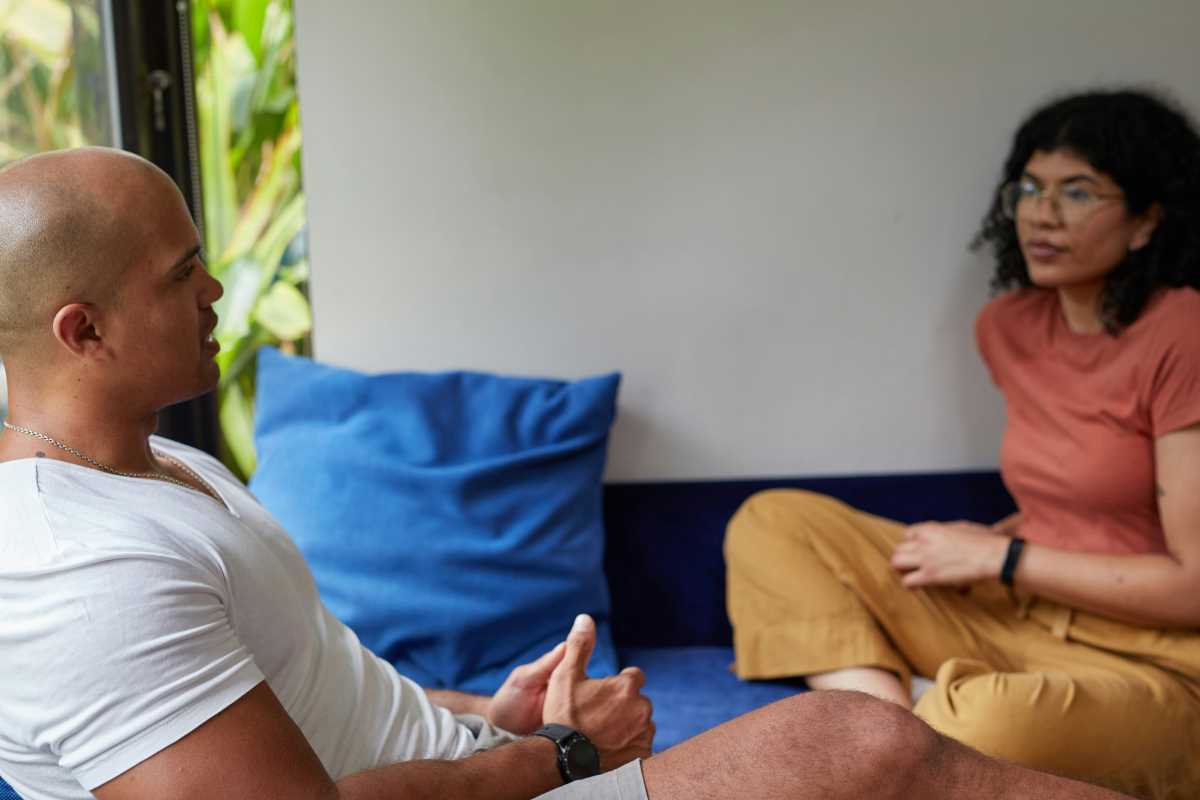Therapy isn’t just something that happens in a clinical office or a private space for individuals struggling with mental health. It can actually be a transformative tool for entire families and households, helping to foster communication, understanding, and emotional well-being. Bringing therapy into the context of your home and family life can create a safe space for connection, growth, and healing. Whether you’re navigating transitions, improving relationships, or managing stress, therapy can be the bridge that brings peace and harmony to your family dynamics.
When you think of therapy in the context of a home, think beyond the traditional idea of crisis intervention. Therapy can be proactive — designed to strengthen bonds, improve emotional communication, and equip each member of the family with strategies to cope with challenges. A healthy home isn’t just about the absence of conflict but about creating an environment where everyone feels seen, heard, and supported. This is where therapeutic intervention can offer lasting change.
With therapy, you learn tools, strategies, and approaches to manage arguments, understand individual perspectives, and build trust. It offers a space where feelings aren’t dismissed, and emotional struggles are met with compassion and understanding. Families come in all shapes and sizes — blended families, multi-generational households, or single-parent homes—and therapy can be adapted to address the unique challenges each structure may face. Here’s how therapy can make a profound impact on your home life.
Therapy Creates Safe Spaces for Honest Communication
One of the biggest barriers in family life is communication — or rather, lack of effective communication. Many misunderstandings arise because people aren’t expressing themselves clearly, or they’re struggling to truly listen to each other. Therapy provides a neutral, judgment-free environment where family members can openly share their feelings without fear of backlash, misunderstanding, or shame.
A licensed therapist can act as a mediator to ensure everyone feels their voice is heard. These sessions provide tools to foster active listening, empathy, and mutual respect — skills that can be carried into daily life beyond the therapy room. A skilled therapist creates a structure for each family member to feel safe enough to articulate their thoughts, fears, frustrations, and dreams without reservation.
Often, unresolved feelings or miscommunications lead to resentment, frustration, or emotional distance. Therapy helps families move past these roadblocks by teaching them how to approach conflict with compassion and curiosity. A few structured conversations with the guidance of a therapist can clear out misunderstandings and build stronger, healthier foundations for family communication.
Managing Transitions and Life Changes
Life is full of transitions, and even happy changes can throw a family’s emotional balance into disarray. New siblings, changes in parenting structures, moving homes, dealing with loss, or navigating career shifts can overwhelm even the most resilient households. Therapy can be an incredible tool for navigating these transitions in a way that prioritizes emotional support and adaptation for every member of the family.
Transitions can bring feelings of anxiety, insecurity, or grief, especially if they happen suddenly or without preparation. Therapy offers strategies to cope with these feelings, process changes in a healthy way, and learn to accept new routines or realities. Therapy can also help children and adults alike express how they’re feeling about change, offering them a space to voice fears and ask questions without judgment.
With a professional therapist guiding these discussions, families can transform these times of change into opportunities for growth and connection. By developing tools to face uncertainty and establish healthy routines, families can emerge from these transitions stronger and more united.
Therapy Strengthens Parent-Child Bonds
Parent-child relationships can be among the most rewarding yet most challenging bonds in any family. As children grow, they develop unique perspectives, needs, and emotions — and parents can struggle to keep up with these ever-changing dynamics. Therapy provides a platform for both parents and children to build understanding, trust, and mutual respect.
Sometimes, parents may find it difficult to connect with their child’s emotional experience, especially during the teenage years or periods of rebellion. Likewise, children may struggle to articulate their feelings to their parents. Therapy can act as a bridge, helping parents understand their child’s perspective while also offering children a safe space to explore their emotions.
Through therapy, families learn strategies to foster empathy, strengthen attachment, and improve discipline techniques without conflict. Family therapists work with parents to provide them with tools for effective communication, boundary-setting, and problem-solving — all of which create stronger and more supportive parent-child relationships. The goal isn’t just conflict resolution but mutual understanding and emotional connection.
Therapy Teaches Tools for Conflict Resolution
Conflict is a natural part of any relationship, including family dynamics. However, unresolved conflict can lead to resentment, misunderstandings, and strained relationships. Therapy can teach families constructive, effective ways to address arguments and work through challenges without falling into harmful patterns of blame, avoidance, or escalation.
Therapists guide families to recognize their triggers, respond to stress without defensiveness, and engage in problem-solving strategies. These tools aren’t just for the duration of therapy — they’re skills that last a lifetime. Learning how to communicate needs, establish boundaries, and compromise can reduce the frequency and intensity of arguments while strengthening the bonds that hold families together.
Conflict resolution in therapy often emphasizes active listening, emotional awareness, and finding common ground. A trained therapist can help you reframe arguments, create healthy dialogue, and build trust by ensuring each party feels heard and validated. As a result, families emerge from therapy with a renewed sense of trust, understanding, and respect.
Therapy Offers Emotional Support for Everyone
Every member of a family brings their own emotions, experiences, fears, and dreams to the table. Sometimes, individual struggles can affect the entire family dynamic. Therapy allows family members to address their personal emotional challenges while also focusing on collective well-being. From dealing with anxiety, depression, grief, trauma, or other mental health concerns, therapy offers a judgment-free space for healing and self-discovery.
When therapy becomes a part of your family routine, it normalizes emotional health. It sends a clear message to every member of the family that emotional struggles are okay, and that seeking help is a sign of strength — not weakness. This normalization breaks the stigma surrounding mental health and allows families to support one another in healthy, open ways.
Therapists often use individual therapy sessions as a part of family work to ensure each person has their needs addressed, alongside the needs of the whole family. Whether it’s a child coping with bullying, a parent managing workplace stress, or a partner navigating personal grief, therapy gives everyone the tools they need to prioritize their mental health and well-being.
Therapy Strengthens Foundations for Long-Term Peace
Therapy isn’t about fixing problems — it’s about creating a foundation for long-term emotional health and stability. It offers strategies that families can carry into their daily routines long after the sessions end. From communication tools and stress reduction strategies to techniques for handling transitions, therapy equips families with ways to manage challenges and maintain peace for the future.
The techniques families learn in therapy — like empathy, effective communication, problem-solving, and emotional resilience — are lifelong skills that extend beyond the therapy room. These tools help ensure that families can weather future challenges together without spiraling into destructive patterns. Therapy teaches families how to stay connected, how to support one another, and how to nurture relationships that are built on trust, compassion, and mutual understanding.
Final Thoughts
Therapy is much more than a solution to a problem; it’s an investment in the health, happiness, and stability of your home and family life. From improving communication to easing transitions, strengthening bonds, and offering emotional support, therapy has the power to transform relationships and create peace at home.
Families are complex, unique systems, and therapy offers a pathway to understanding, healing, and growth. Whether your family is navigating a major transition, trying to manage conflict, or simply seeking ways to foster a stronger emotional connection, therapy can help you build the tools and understanding necessary for long-lasting peace.
By addressing challenges head-on and learning strategies for emotional well-being, therapy can make your home a safe, supportive space where all members feel valued and understood. After all, peace starts at home — and therapy can be the first step toward making that peace a reality.
 (Image via
(Image via





